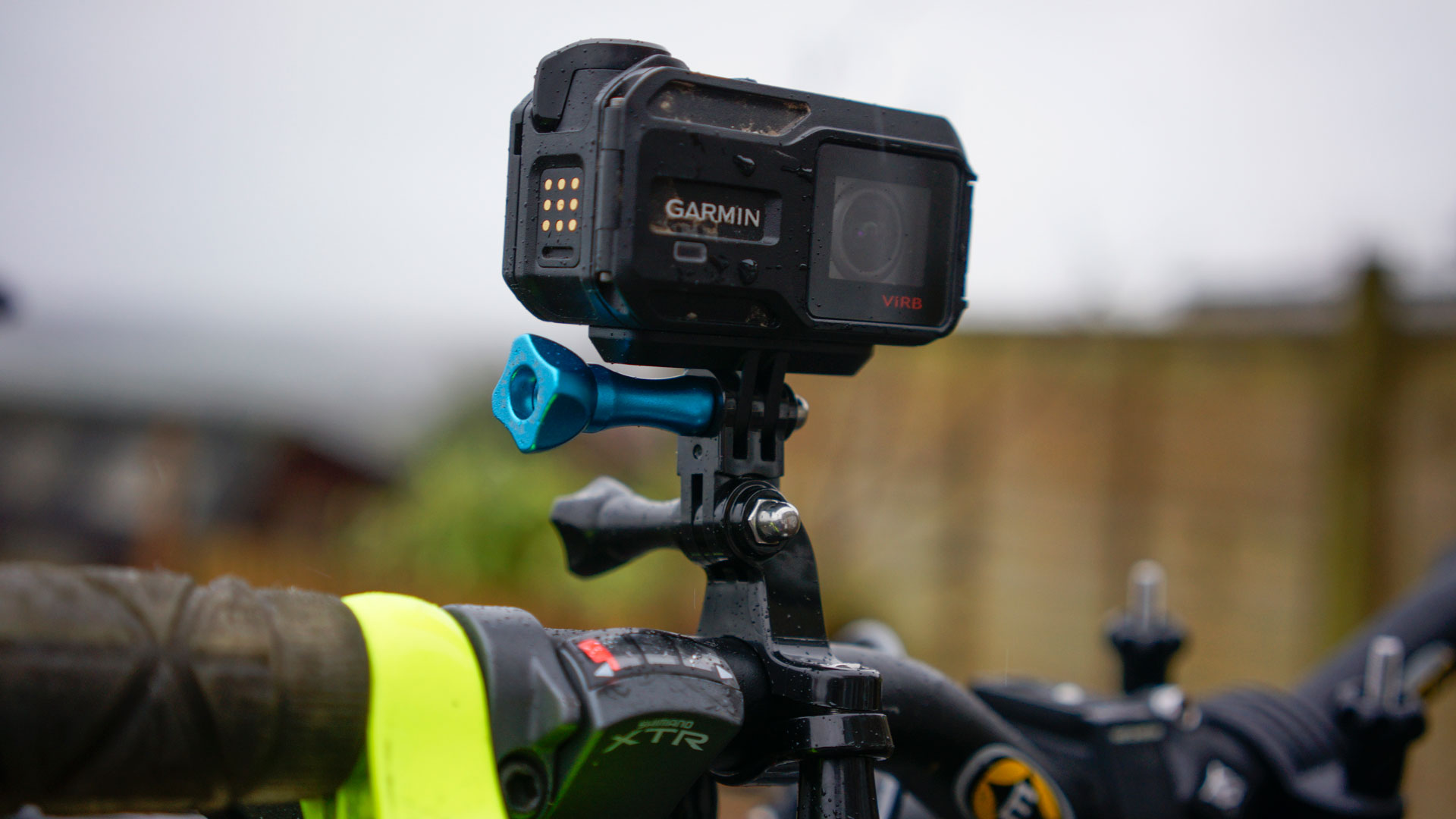Why you can trust TechRadar
Resolution and frame rates are the key specs for any action camera – you need a good, high resolution to capture the fine detail and high frame rate so that it's possible to play footage back in slow motion. Here the XE only takes only a small hike in resolution to 1440 at 30fps over the Virb Elite. Recording at 1080p at both 30fps and 60fps captures footage at 25Mbit/s.
GoPro started a trend with ProTune for pro options and these are now starting to become an action camera standard for top branded models. Here Garmin follows the trend by enabling a 'Pro' mode for adjusting white balance, ISO, sharpness, exposure, and colour profile. Garmin has also added a winning multicam sync feature that uses a GPS timestamp – this will be a welcome addition for all video editors.
Two other welcome features are the built in image stabilization and zoom. These are both digital but work well. Image stabilization is accessed through the camera's menu in the app and just helps to reduce camera shake to create smooth motion footage. The stabilization is good but don't expect the same results that can be obtained from a steadicam or gimbal. The zoom feature is also handy and has three zoom settings. Using these is good when filming people and want to eliminate the lens's fisheye distortion from the footage.
Video quality
Compared to the latest cameras, the XE has a relatively low top resolution. However, the quality of the footage is exceptional, with good clear detail and bright, well-saturated colour. The lens also fares well and keeps a limit on flare, despite the fisheye perspective.
Switching to the Pro mode enables you to set the ISO and white balance manually, which can be useful when riding through woodland as it stops the exposure from jumping as you go from light to dark.
In lower light conditions the small sensor coped well but, as expected, there were noticeable signs of noise and when trying to use the camera at dusk that noise becomes quite unpleasant. This level of noise in low light is not unusual for action cameras, however.
Other resolution include 240fps @ 480p which is good enough for footage shown on mobiles say, and captures slow motion action well. More standard resolutions include 1080p at 60fps and 720p at 120fps – these are not groundbreaking but at least the quality of the footage is excellent. The slow motion 720p footage proved good, with smooth motion and frames with a decent amount of clear detail.
Sign up for breaking news, reviews, opinion, top tech deals, and more.
Garmin Virb XE Overlay: Sample footage from the Virb XE showing one of the many options for overlaying the captured GPS data.
Garmin Virb XE tricky light: Sample footage from the Virb XE showing how it deals with tricky lighting conditions. This footage shows the camera shooting into the sun. Although the video looks slightly underexposed, it has handled the auto exposure well and a slight brightening of the footage kicks out the detail without too much noise being introduced.
Garmin Virb XE Pro Video: The Virb XE has a series of Pro video options similar to those found under the ProTune settings on the GoPro. These enable you to set the ISO, Sharpness and colour and are a handy addition if you're a professional video editor.
Garmin Virb XE Glare: Glare can be a major issue and is never that difficult to show with action cameras. Here the camera, lens and case work well to keep glare to a minimum and perfectly acceptable for this angle of shot.
Ali Jennings is the imaging lab manager for Future Publishing's Photography portfolio. Using Imatest Master and DxO Analyser he produces the image quality tests for all new cameras and lenses review in TechRadar's cameras channel. Ali has been shooting digital since the early nineties and joined Future's Photography portfolio back in 2003.
